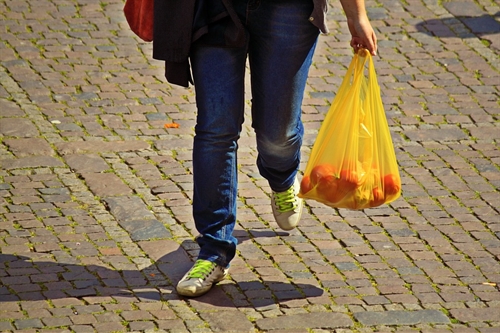What To Do With Plastic Bags (and why you shouldn't throw them away)
 For decades, plastic bags made from high-density polyethylene (#2 plastic) or low-density polyethylene (#4 plastic) have been the standard for helping shoppers get their haul home. While plastic bags are cheap to manufacture and sturdy enough to help you get your groceries home, they have become the bane of the waste industry and the environment. Plastic bags have become such a problem that they are now banned in the state of California.
For decades, plastic bags made from high-density polyethylene (#2 plastic) or low-density polyethylene (#4 plastic) have been the standard for helping shoppers get their haul home. While plastic bags are cheap to manufacture and sturdy enough to help you get your groceries home, they have become the bane of the waste industry and the environment. Plastic bags have become such a problem that they are now banned in the state of California.
Here's why plastic bags are such a problem:
- Plastic bags get thrown into recycling bins by mistake and jam up recycling machinery. (That's right, plastic bags should not be put into regular recycling bins!)
- During transport and at the landfill, they are a huge source of litter problems.
- Plastic bags are one of the most common sources of ocean debris, where they can be mistaken as food by birds and fish.
- Plastic bags don’t biodegrade, meaning it will take hundreds of years for them to decompose in a landfill.
Properly recycling bags saves about 11 barrels of oil per ton of bags recycled. It also prevents unsightly litter and hazards to wildlife. Here is what you need to know about reducing the waste and litter associated with plastic bags:
- When you go to a store, take your own reusable bags, or ask for no bag if you're only buying one or two items.
- Take your empty, clean #2 or #4 plastic bags to appropriate recycling centers. Many grocery stores have collection bins where you can drop them off for free. Remember, please do not mix them in with your curbside recycling.
- If your plastic bags are made from something other than #2 or #4, use them for something else, like lining your garbage cans, before throwing them away.
- The South Butler Community Library hosts meetings sponsored by New Life Christian Church near Saxonburg where volunteers knit plastic bags into weatherproof sleeping mats for the homeless. Read more about the group in the Trib Live article or start a group on your own area.